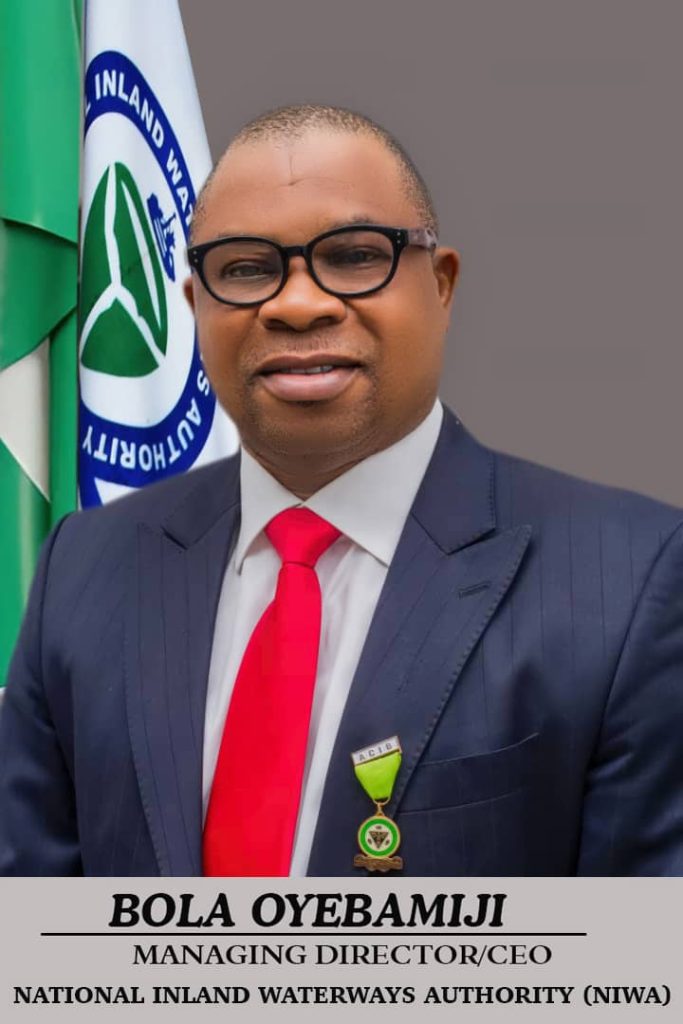
When Mr. Munirudeen Bola Oyebamiji was appointed as the Managing Director of the National Inland Waterways Authority (NIWA) in 2023, it is doubtful he knew what the job had in stock for him. He is arguably the most-talked-about Chief Executive Officer in the nation’s maritime industry. Sadly, it is for the bad reason of frequent boat accidents.
Stakeholders and the larger Nigeran public have argued that under Oyebamiji’s leadership, NIWA has failed to address the alarming frequency of boat accidents, which continue to claim innocent lives across the country. Yes, there has been several boat accidents since 2023. But there had been such accidents even before then.
It is more appalling that boat users and operators have equally expressed outrage over the incessant boat mishaps that have claimed over 300 lives since the appointment of the NIWA boss.
It is instructive that while many express unhappiness over the serial mishaps, stakeholders have attributed these mishaps to overloading, poorly-maintained crafts, engine failures, and a lack of safety equipment. On the strength of these recurring tragedies, boat users have also regrettably accused the NIWA leadership of inaction, describing the agency as being “asleep” while lives are being lost.
While these accidents happen, they have been met with condolences, visitations to accident scenes; followed by appeal to waterways users and providers of waterways transportation services to keep to the rules of water navigation.
These accidents happen almost regularly; the latest being around 2am on Friday, November 29, 2024 in Niger state. Preliminary reports revealed that the ill-fated wooden boat was sailing from Ebe Community in Kogi state, to Katcha market in Niger State when it capsized due to poor visibility and overloading! Scores of passengers died.
It has been established that in Nigeria, most boat accidents occur largely due to non-compliance with basic regulations. There is a standard rule that there should be no night sailing from 7pm. But this has been largely ignored by both passengers and boat operators.
Another safety rule is that, life jackets should be provided for all passengers on the boat and that no passenger should board any boat without a life jacket.
In most of the accidents, boats are put on the waters outside of regulated navigation time and in defiance of NIWA regulations on navigation. In the case of the latest mishap in Niger state, it happened in the early hours of the morning on Friday, the boat having left neighbouring Kogi state late on Thursday. Sadly, apart from sailing in the dead of the night, and as with previous accidents, the passengers had no life jackets on.
Nigeran waterways management makes no room for night monitoring and marshalling. So why would anyone hold NIWA and its CEO responsible or culpable in a mishap that occurred well outside of regulated time, and in total deviance of regulations.
Truth be told, how does anyone hold NIWA responsible, when adults refuse to use life jackets and when the operators insist, the riders refuse and threaten to go patronize another boat.
As much as one is tempted to put the blame for boat mishaps on NIWA and by extension, its Chief Executive Officer, it needs to be understood that Nigeria’s navigable inland waterways is in excess of 10,000 kilometers. There is no way NIWA can physically man the stretch of brown waters which crisscross from the North to the South and runs through several states. All it can do is to provide guidelines on safety measures that are applicable. However, it is within the purview of NIWA to keep exploring tech-driven ways of monitoring compliance. It must also punish erring operators.
However, in addition to provision of safety guideline, it is also the duty of NIWA to ensure that the channels are navigable. But, reports of the mishaps have shown clearly that they occur mainly as a result of violation of safety regulations, and not due to clogged channels.
Boat operators flagrantly ignore basic safety rules, including ban on night sailing, use of life jackets, respect for navigational chats, seaworthiness of their crafts, non-usage of alcohol, etc, yet we blame NIWA.
Probably unknown to the general public, but certainly known to boat operators and other stakeholders in waterways transportation, there is a Water Transportation Code for public use. There is a sustained safety campaigns that have been launched across all operational bases, targeting local communities in their native languages.
In addition to these, NIWA had inaugurated several operational assets including survey boats, gunboats, water ambulances.
As recent as last week, the NIWA boss was in Kwara state, where he met with Commissioners of Transportation from the 36 states of the federation. His message to them was the same as before; he sought their collaboration
At the meeting, Oyebamiji specifically appealed to the Commissioners for Transportation across relevant states to collaborate with NIWA in areas such as training, safety campaigns, infrastructure development, and financial empowerment.
The incessant boat mishaps will be greatly eradicated if governments of littoral states take a keen interest in water transportation in their states. Those states need to understand that as much as waterways navigation is on the Excusive List, safety of their citizens and residents is a more concerning matter, than jurisdiction. The states should join NIWA to educate boat owners and operators as well as locals about the need for adherence to the guidelines for safe waterways usage.















